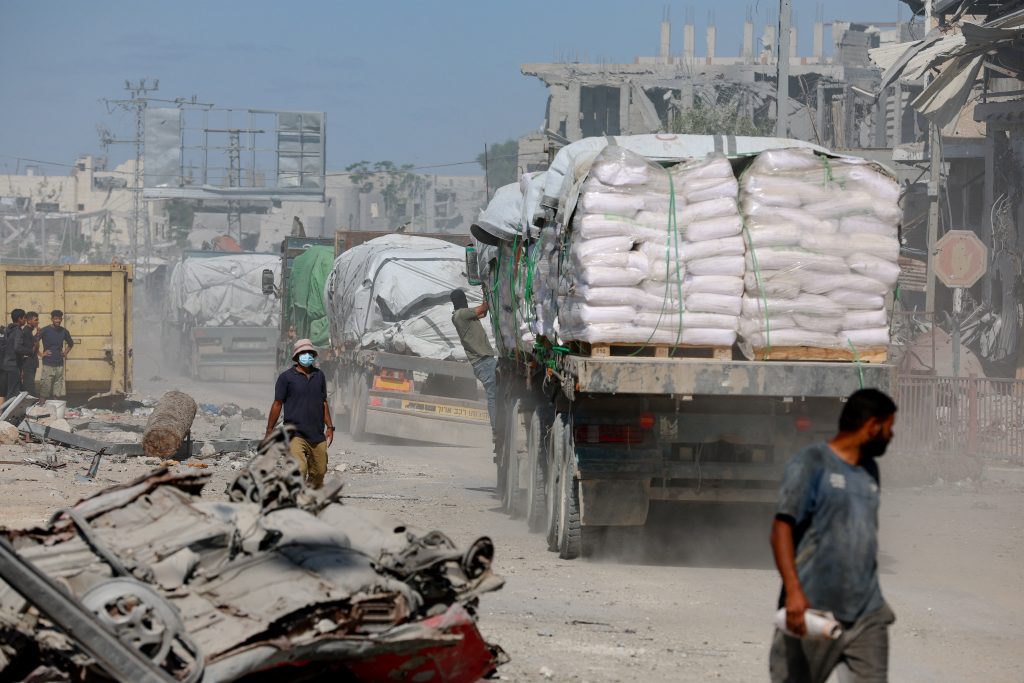Israel has informed the UN that it will only allow 300 aid trucks to enter Gaza per day, keep the Rafah crossing closed, and block virtually all fuel and gas shipments into Gaza until Hamas releases all of the remains of Israeli captives, which still need to be located under the rubble.
Under the Gaza ceasefire deal, Israel agreed to allow 600 aid trucks to enter Gaza per day, the minimum the UN says is needed to bring relief to the civilian population that has been starving under the Israeli siege.
So far, Hamas has released eight out of 28 of the bodies of hostages that remain in Gaza. Israel is accusing Hamas of violating the ceasefire deal, but it was aware that it would take time to recover the remains before the ceasefire deal was signed.
“During Gaza negotiations, Israel understood it would take time to recover all bodies of deceased captives. A specific mechanism for recovering the bodies was agreed,” Drop Site News reporter Jeremy Scahill, who has reported extensively on the ceasefire negotiations, wrote on X. “Now Israel is pretending that didn’t happen so it can violate the deal and cut the agreed aid shipments in half.”

According to the ceasefire deal that Israel and Hamas signed, Hamas had 72 hours since the truce started to release all living hostages and all of the remains of Israeli captives that Hamas and other Palestinian factions had in their “possession.” Regarding the other bodies, Hamas is obligated to share “all the information it obtained relating to any remaining deceased hostages” through a mechanism established by the deal.
The deal stipulates that an information-sharing mechanism between Israel and Hamas will go through the mediating countries and the International Committee of the Red Cross (ICRC), which has confirmed that the bodies will take time to find.
The ICRC said Tuesday that it will take time for Hamas to hand over all of the remains, saying it will be a “massive challenge” to locate all of them in the rubble. “That’s an even bigger challenge than having the people alive being released. That’s a massive challenge,” said ICRC spokesman Christian Cardon, according to Reuters.
Cardon added that it could take days or weeks to find all of the bodies, and there’s a possibility that some may never be found. “I think that there is clearly a risk that that will take much more time. What are we telling the parties is that that should be their top priority,” he said.
Israeli sources told CNN last week that they were aware that there’s a chance not all of the bodies will be located. The Times of Israel also reported that hostage families were told that locating all of the bodies would be hard and that a “multinational task force” would be involved in the process.
Despite the reality, President Trump also appears to be accusing Hamas of violating the deal. “ALL TWENTY HOSTAGES ARE BACK AND FEELING AS GOOD AS CAN BE EXPECTED. A big burden has been lifted, but the job IS NOT DONE. THE DEAD HAVE NOT BEEN RETURNED, AS PROMISED! Phase Two begins right NOW!!!” he wrote on Truth Social on Tuesday.
On top of limiting the aid, Israel also killed at least seven Palestinians in Gaza on Tuesday, including six in Gaza City and one in the southern city of Khan Younis.


